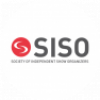- 14 December 2021
LEADING FROM A DISTANCE:
3 ACTIONABLE TIPS

By Dr Victor Seah, Deputy Head of the Psychology Programme and Senior Lecturer of Organisational Psychology, Singapore University of Social Sciences (SUSS).
Almost half (47%) of leisure and hospitality staff surveyed in 2021 by McKinsey reported that they were thinking of leaving their current job in the next 3-6 months. This intention to quit was high across countries (including Singapore), industries, and functions with 38% of Trade and Transportation workers, and 41% of white collar workers wanting to quit. Similarly, HR consulting firm OC Tanner found elevated levels for intention to quit, especially if the employee feels less connected to the organisation. Retaining MICE and Events employees, in the face of the Great Resignation, is the first reason why bosses need to be better leaders.
As the saying goes, people don’t quit a job, they quit a boss. Yet, even if they don’t quit poor leaders, employees and businesses suffer in multiple other ways ranging from lower job satisfaction, increased work-family conflict, heightened rates of depression and stress, and reduced work productivity. In the face of a tough COVID-19 business environment, better leaders are needed to improve business performance.
7 October 2021 saw the creation of a reopening roadmap for the region’s business events industry. This was accompanied by the launch of the Asia CEO Summit, due to take place in 2022 at the Fullerton Hotel, Singapore. While these developments can be seen as an indication that the industry is turning a corner, uncertainties in reopening, and employee demand for flexible work arrangements means that bosses need to be better at leading from a distance.
There’s no such thing as too much communication
The first actionable tip for leading from a distance is to communicate, communicate, and communicate. A 2020 study with more than three million respondents found that while the number of work meetings have increased during the pandemic, meetings have become more formal and shorter in duration. This has drastically reduced the informal work interactions that are vital for building workplace friendships and connections. No surprise then that a subsequent survey found that 1 in 3 employees felt disconnected from their leaders.
How should leaders communicate with their employees? The key word is personalisation – find out and communicate with your employees through their preferred medium where possible. A working parent with young children at home because of lockdown measures may be happier speaking over email than over frequent Zoom calls. What should leaders communicate about? Where possible, leaders should frequently share organisational changes and plans so as to reduce the uncertainty brought about by the pandemic. Leaders should also display empathy and sensitivity. When meeting employees, leaders should show a genuine concern for their families and personal lives too – remember that the workplace is where many of us form most of our new friendships and bonds!
Sustain your organisation’s culture
One casualty of working from home is the erosion of culture. Culture is spread through stories, symbols, and informal interactions. Symbols can be made virtual – having shared virtual backgrounds that reflect the organisation’s culture is one low-lying fruit. Leaders should redouble their efforts to celebrate and create myths in a flexible work environment. Communicate with employees frequently to identify personal and professional milestones. Then, loudly and frequently celebrate such wins with the team and the wider organisation.
Encourage shared leadership
Managers have found accountability and monitoring particularly challenging in a virtual or remote work environment. Instead of trying the impossible task of tracking what all your employees are doing from a distance, encourage shared leadership by giving different employees responsibilities over suitable tasks and milestones. Train employees and have them volunteer to lead various initiatives. Crucially, recognise that your employees will make mistakes and fail in the process. Be supportive and you can create an environment of psychological safety – crucial for optimal performance and innovation.
The COVID-19 business environment has been marked by uncertainty. One certain and perennial area for businesses to work on is leadership. These three actionable tips should help you as you lead from a distance.
Singapore University of Social Sciences (SUSS) conducts a wide range of Continuing Education and Training courses. Courses can be tailored to meet the specific needs of your organisation. For more information, please contact Ms Vicki Loh at [email protected]
If you would like to contribute an article, please reach out to us at [email protected]












